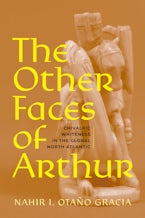How a lower patrician Venetian family strove for status and wealth over the course of the fourteenth and early fifteenth centuries
The House of Condulmer tells the story of a lower patrician Venetian family in the wake of the Black Death, as they strove for status and wealth over the course of the fourteenth and early fifteenth centuries. The Condulmers experienced mixed fortunes in their efforts at social mobility. Exiled after their participation in a failed revolt against the Venetian state, they nevertheless managed to accrue a great deal of wealth in the period before the Black Death. In the aftermath of the plague, which ravaged Venice and wiped out many lines of the family, the fortune of the Condulmers was concentrated in two main branches, whose members are the subject of this book.
Through original research drawing on hundreds of unpublished archival sources, Alan M. Stahl traces the careers and changing personal circumstances of five members of the Condulmer family: Jacobello, who used his civic participation and donations to achieve noble status for himself and his descendants but impoverished himself and his family in the process; Vielmo, a moneychanger who paraded around in the trappings of wealth, attempting to imitate the appearance of his noble cousins; Franceschina, who used her power over dowries to get noble husbands for her daughters and stepdaughters; Simoneto, who achieved great wealth through Mediterranean commerce but lost it in the crash of the bank in which he was a partner; and Gabriele, who would eventually become one of the most consequential and reviled popes of the Renaissance, Eugene IV.
The House of Condulmer brings readers into the world of intrigue, finance, religion, and plague in medieval Venice, capturing the vicissitudes of life in the one of the wealthiest cities of the world on the eve of the Renaissance.











